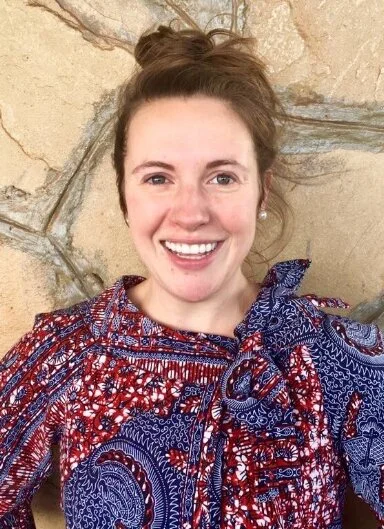Meet the Mawazo Board: An Interview with Board Chair, Rachel Strohm
Author: Naliaka Odera
In October of this year, the Mawazo Institute board met for its first annual board meeting, culminating a months-long recruitment and induction process. Chaired by Mawazo co-founder, Rachel Strohm, the board will enable Mawazo to move forward decisively in its vision, while ensuring we achieve our goals. We spoke to Rachel about how the board members were selected and what this new board means for Mawazo’s future.
Q: First of all, congratulations on the new board!
RS: Thank you!
Q: Let’s start with talking about why this was a necessary next step for Mawazo. Why have a board of directors and what do you hope the Board will enable Mawazo to accomplish?
RS: Well, first of all, a board is required by law but not all boards have to be working boards. When we started looking into this, it felt like this wide-open space where there weren’t specific rules that our board must adhere to, [beyond a ‘duty of care’], so we did a lot of background research on what it is that boards of non-profits do. We found that there are all kinds of boards with different goals. There are working boards that can complement some of the day to day activities of the staff. There are advisory boards, which are really about advising on programs and making connections for you, and then there are fundraising boards, which are self-explanatory. At Mawazo, we are really more of a working board, but with elements of all three.
We wanted board members who really cared about the mission enough to be generally working on behalf of Mawazo, and not just checking in every once in a while.
Q: How big is the board and did you already have certain types of people, or expertise, in mind when you began the search?
RS: The board has ten members, and also our CEO Dr Rose M. Mutiso, who is our connection between the board and the staff. We decided we wanted somewhere from ten to twelve people on the board and we had both demographic goals, and specific committees we wanted to fill. Demographically, we obviously wanted African women to be prominently represented, but this was probably the one place in the organization where we didn’t think every position needed to be an African woman so we could widen our networking circles.
Q: Could you tell us about the board members and their different backgrounds?
RS: We are so excited about the level of expertise our board members are coming in with. On the higher education and research committee, which is focused on higher education systems in the region, we have a couple of powerhouses, starting with Dr. Joy Kiiru from the University of Nairobi who has been such a fantastic supporter of Mawazo from the early days. She is just so passionate about the mission and has had so many useful points about how we support women in public universities. She also has a lot of expertise in the social sciences as an Economist. Dr. Joy is also our deputy chair of the board. Then we have Prof. Bitange Ndemo who teaches entrepreneurship at the University of Nairobi’s Business School. He is especially skilled at breaking down the organisational structure of things as well as management and communication processes. The final person committee is Prof. Mary Abukutsa-Onyango who is in horticulture and is a distinguished scientist specialising in African indigenous vegetables. She is also the Deputy Vice-Chancellor of Research, Production and Extension at the Jomo Kenyatta University of Agriculture and Technology. All three of the members of the committee are senior figures in Kenyan higher education, representing three different fields.
Then we have a fundraising committee with four members who are all terrific in helping us think through the core of the fundraising strategy. First, we have Wanjiku Kiragu who is the Director of Partnerships for Donor and Grant Relations at Arifu, an Ed-Tech Social Enterprise. She knows so much about the inside of the foundation world and has been a really useful advisor, and brings her own networks as well. Then there is Kim-Andrée Potvin who is the Director General at Landolt & Cie SA and has spent a lot of time travelling in Africa, and believes in supporting women. Kyle Polite is the Director of Fundraising for the San Francisco Opera and has strong experience with hands-on fundraising efforts. Finally, we have Ruth Levine who was the Program Director of the Global Development and Population Program at the William and Flora Hewlett Foundation from 2011 - 2019.
Our last committee is the finance and legal compliance committee, which is tasked with ensuring that Mawazo is legally compliant in all its decisions and operations. Cosmas Mulumba works at PwC [PricewaterhouseCoopers], and has a background in accounting. He has been helping us for a while, especially working closely with our finance manager, Liz Ngala, to ensure that our financial systems are as efficient as they can be. Then there is Christina Ndaba-Banja who is a senior associate at Coulson Harney, which is part of the premier pan-African law firm, Bowmans, and helps [Mawazo] with a lot of forward-looking legal advice.
Q: What are you most looking forward to with the Board?
RS: At the general board meeting, the committees will discuss what they have come up with from their separate meetings and we will be able to look at the strategic plan all together. It will be fantastic to be able to set some new goals and have input from such experienced people. It is so powerful to have a structured set of in-house advisors. Up until now, we have had so many great conversations and advice from lots of great people, but to know we have this resource of people who are invested in Mawazo and interested in the journey we take, is really exciting.

